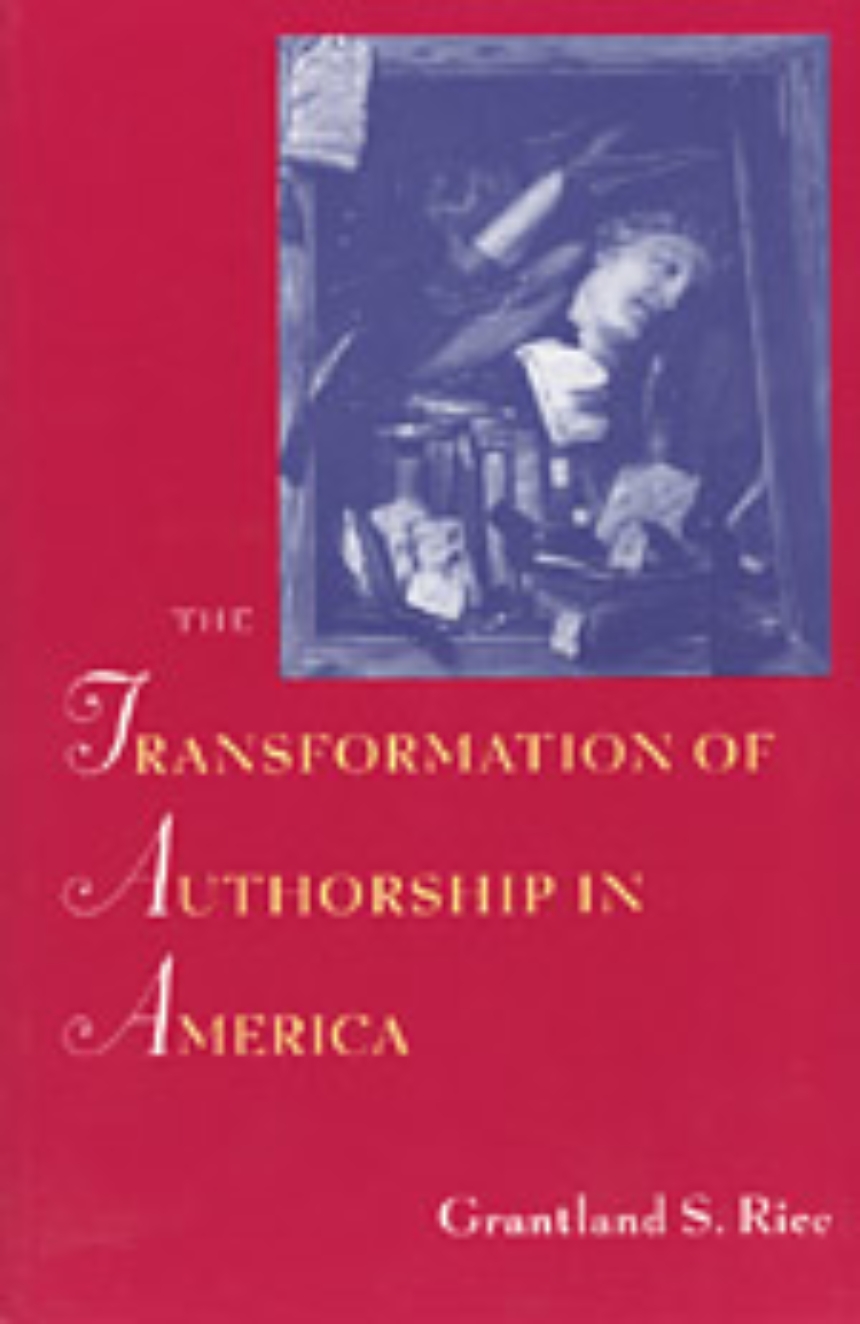The Transformation of Authorship in America
Did the emergence of a free press liberate eighteenth-century American authors? Most critics and historians have assumed so. In a study certain to force a rethinking of early American literary culture, Grantland S. Rice overturns this dominant view. Rice argues that the lapse of Puritan censorship, the consolidation of copyright law, and the explosion of a commercial print culture confronted writers in the new United States with a striking predicament: the depoliticization and commodification of public expression.
Rice shows that the rigorous censorship practiced by Puritan authorities conferred an implicit prestige on texts as civic interventions, helping to foster a vigorous and indigenous tradition of sociopolitical criticism. With special attention to the sudden emergence of the novel in post-revolutionary America, Rice reveals how the emergence of economic liberalism undermined the earlier tradition of political writing by transforming American authorship from an expression of individual civic conscience to a market-oriented profession.
Includes discussions of the writings of Benjamin Franklin, Michel-Guillaume-Jean de Crèvecoeur, and Hugh Henry Brackenridge.
Rice shows that the rigorous censorship practiced by Puritan authorities conferred an implicit prestige on texts as civic interventions, helping to foster a vigorous and indigenous tradition of sociopolitical criticism. With special attention to the sudden emergence of the novel in post-revolutionary America, Rice reveals how the emergence of economic liberalism undermined the earlier tradition of political writing by transforming American authorship from an expression of individual civic conscience to a market-oriented profession.
Includes discussions of the writings of Benjamin Franklin, Michel-Guillaume-Jean de Crèvecoeur, and Hugh Henry Brackenridge.
Table of Contents
Acknowledgments
Introduction
Pt. I: The Transformation of Authorship
1: The World Turned Upside Down: Sociopolitical Criticism in Puritan America
2: The Rise of a Free Press and the Erosion of a Public Sphere: The Zenger Case Reconsidered
3: Benjamin Franklin’s Autobiography and Republican Print Rationality
4: Liberalism and Republication: The Problem of Copyright for Authorship in America
Pt. II: The Aesthetic Response
5: Crevecoeur and Strategies of Accommodation
6: Brackenridge and the Resistance to Textual Authority
Pt. III: The Rhetoric of Fiction
7: Authorial Coquetry and the Early American Novel
Afterword
Notes
Bibliography
Index
Introduction
Pt. I: The Transformation of Authorship
1: The World Turned Upside Down: Sociopolitical Criticism in Puritan America
2: The Rise of a Free Press and the Erosion of a Public Sphere: The Zenger Case Reconsidered
3: Benjamin Franklin’s Autobiography and Republican Print Rationality
4: Liberalism and Republication: The Problem of Copyright for Authorship in America
Pt. II: The Aesthetic Response
5: Crevecoeur and Strategies of Accommodation
6: Brackenridge and the Resistance to Textual Authority
Pt. III: The Rhetoric of Fiction
7: Authorial Coquetry and the Early American Novel
Afterword
Notes
Bibliography
Index
